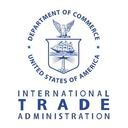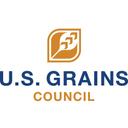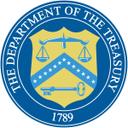The U.S. DOT’s NHTSA on June 7 issued a final rule setting new corporate average fuel economy (CAFE) standards. Growth Energy said the agency has again missed the opportunity to recognize the importance of high-octane, low-carbon ethanol.
The EU has committed to carbon-reduction goals centered around E10 blending across its member states. The USGC recently sent a delegation to the region to build relationships with industry stakeholders and policymakers in support of that goal.
The International Air Transport Association announced that its projections for a tripling of sustainable aviation fuels (SAF) production in 2024 to 1.9 billion liters (1.5 million metric tons) are on track.
The U.S. EPA is seeking nominations for a diverse range of qualified candidates to be considered for appointment to its Mobile Sources Technical Review Subcommittee, including those with experience in the biofuels and agriculture industries.
The U.S. Department of Energy Bioenergy Technologies Office has released a Summary Report from a September 2023 Request for Information (RFI) on building supply chains to meet Sustainable Aviation Fuel (SAF) Grand Challenge goals.
The EU is entering a new political era, with voters electing a new Parliament and Member States sending new commissioners to Brussels. During this period of change, the ethanol industry is working to help build awareness of the fuel’s benefits.
In May, another high-stakes legal challenge to the RFS was rebuffed, establishing some important precedents and putting the program on solid footing for the future.
The USGC, Latin American Energy Organization and Inter-American Institute for Cooperation on Agriculture have partnered to train government officials and industry and refinery representatives on the benefits of ethanol.
USDA publishes request for information to support next steps in implementing the Growing Climate Solutions Act
The USDA is seeking information from the public on protocols that may be considered for inclusion in a new Greenhouse Gas Technical Assistance Provider and Third-Party Verifier Program, the main program of the Growing Climate Solutions Act.
The U.S. Department of Commerce’s International Trade Administration on May 28 announced the renewal of its Renewable Energy and Energy Efficiency Advisory Committee. The agency is also seeking nominations for committee membership.
ePURE has announced the release of new research that points to 100% renewable Superethanol-E85 as a viable replacement for fossil fuels to reduce carbon dioxide emissions produced by transport.
The House Committee on Agriculture on May 24 completed markup of its version of the 2024 Farm Bill and passed the proposed legislation by a 33-21 vote. Among the provisions included in the bill are those that support the SAF industry.
The U.S. Grains Council on May 21 received notice of additional funding from the USDA under its Regional Agriculture Promotion Program. The award will disperse $17 million to the USGC for use in developing U.S. export markets.
Kansas Corn Growers Association members are celebrating the success of the Renewable Fuel Standard which is entering its 15th year. While the RFS was enacted in 2005, its expansion in 2007 (RFS2) led to the significant impact of renewable fuels to the nation’s economy and environment.
The U.S. DOE’s Bioenergy Technologies Office awarded $2.18 million in funding to four additional projects as part of the Feedstock-Conversion Interface Consortium (FCIC) 2023 Cooperative Research and Development Agreement (CRADA) call.
The House Committee on Agriculture on May 17 released a discussion draft of its version of the 2024 Farm Bill, formally titled the “Farm, Food, and National Security Act of 2024.” The committee is scheduled begin markup of the bill on May 23.
The RFA and Growth Energy on May 20 filed a petition with the U.S. Supreme Court requesting a review of the Fifth Circuit Court of Appeals’ November 2023 opinion regarding the U.S. EPA’s denial of several small refinery exemption (SRE) petitions.
The Australian government on May 14 released its $22.7 billion 2024-2025 budget. The plan, in part, includes provisions that aim to support the commercialization of net-zero technologies, such as SAF and renewable hydrogen.
The Chemical Catalysis for Bioenergy Consortium, a consortium of the U.S. DOE’s Bioenergy Technologies Office, has launched an effort that aims to gather community input on the development of new biomass processing facilities.
More than 2.06 billion RINs were generated under the Renewable Fuel Standard in April, up from 1.84 billion generated during the same month of last year, according to data released by the U.S. EPA on May 16.
The U.S. EPA released updated small refinery exemption (SRE) data on May 16, reporting that no new SRE petitions have been filed under the Renewable Fuel Standard in the past month. A total of 38 SRE petitions remain pending.
A group of 25 trade organizations on May 15 sent a letter to Treasury Secretary Janet Yellen urging the agency to release guidance for the 45Z clean fuels production tax credit along with any necessary updated GREET models.
The U.S. Court of Appeals for the District of Columbia Circuit on May 14 upheld the renewable volume obligations (RVOs) set by the U.S. EPA for Renewable Fuel Standard compliance years 2020, 2021 and 2022.
Iowa Gov. Kim Reynolds on May 9 signed legislation that, in part, boosts funding for the state’s renewable fuel infrastructure program that helps retail fuel stations install equipment to supply higher blends of ethanol and biodiesel.
US ethanol and SAF industry leaders seek to intervene in legal challenge to EU SAF regulation
Leaders of the U.S. ethanol industry are seeking to intervene in a legal challenge of the ReFuelEU Aviation Regulation, which effectively bans the use of renewable, crop-based biofuels like corn ethanol as a feedstock for SAF.
The U.S. Grains Council’s Southeast Asia and Oceania team recently participated in two leading bioenergy conferences in the region, underscoring the pertinent role ethanol can play in emerging new-use areas for transportation decarbonization.
U.S. Senate Agriculture, Nutrition and Forestry Committee Chairwoman Debbie Stabenow, D-Mich., and House Agriculture Chairman Glenn “GT” Thompson, R-Pa., on May 1 released outlines for competing versions of the 2024 Farm Bill.
The Treasury Department and IRS on April 30 released new guidance on the SAF tax credit and announced the launch of the 40BSAF-GREET 2024 model, which incorporates a pilot-program to encourage the use of climate-smart ag practices for SAF feedstocks.
Nebraska Gov. Jim Pillen on April 24 signed a legislative package that includes a tax credit to support the production of SAF within the state. The tax credit applies to eligible SAF that achieves at least a 50% GHG emissions reduction.
A coalition of 36 biofuel producers, ag groups, airlines and other SAF stakeholders on April 24 sent a letter to Agriculture Committee leaders in the House and Senate urging them to provide support for SAF in the upcoming Farm Bill.
Advertisement





























